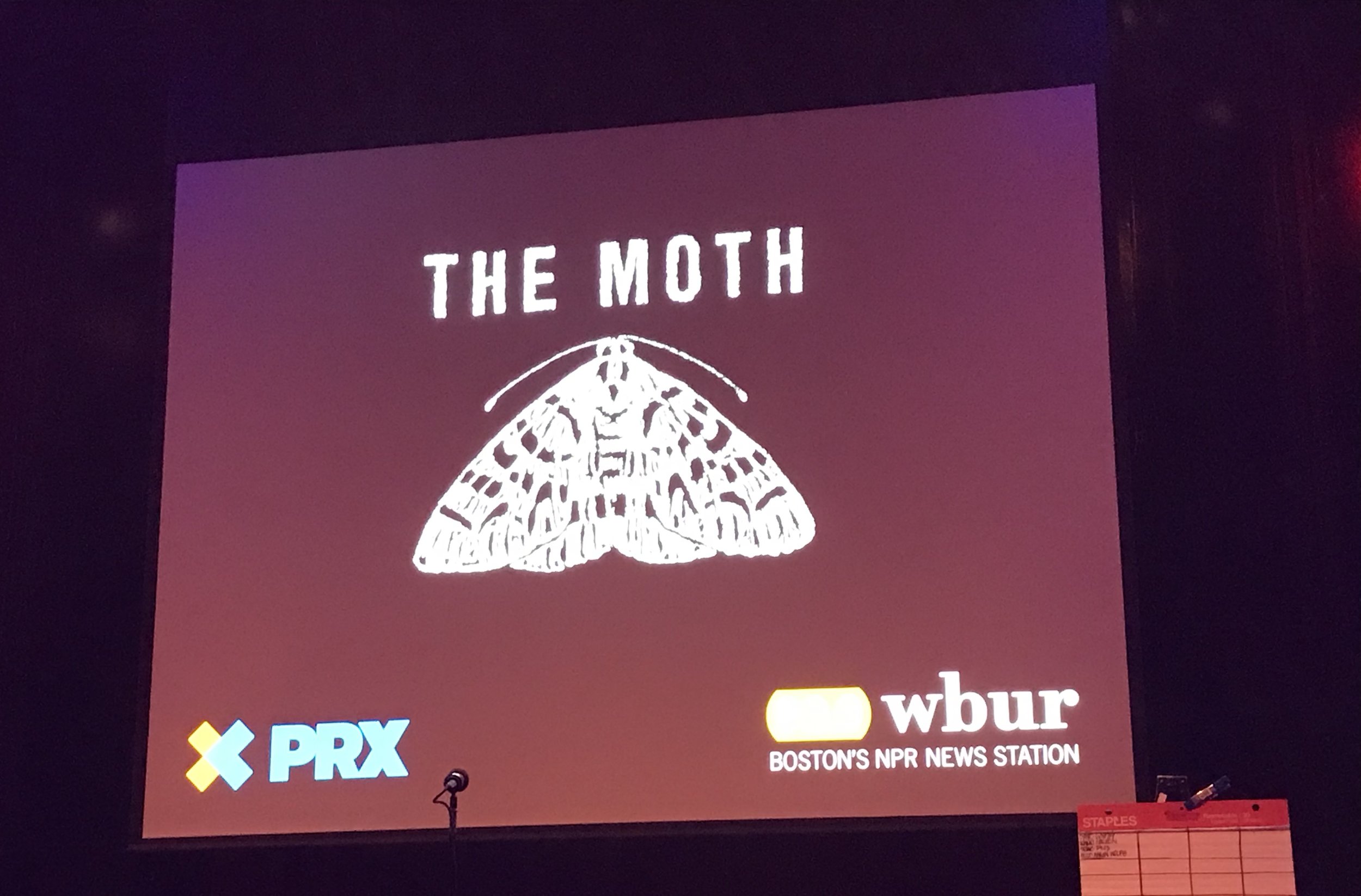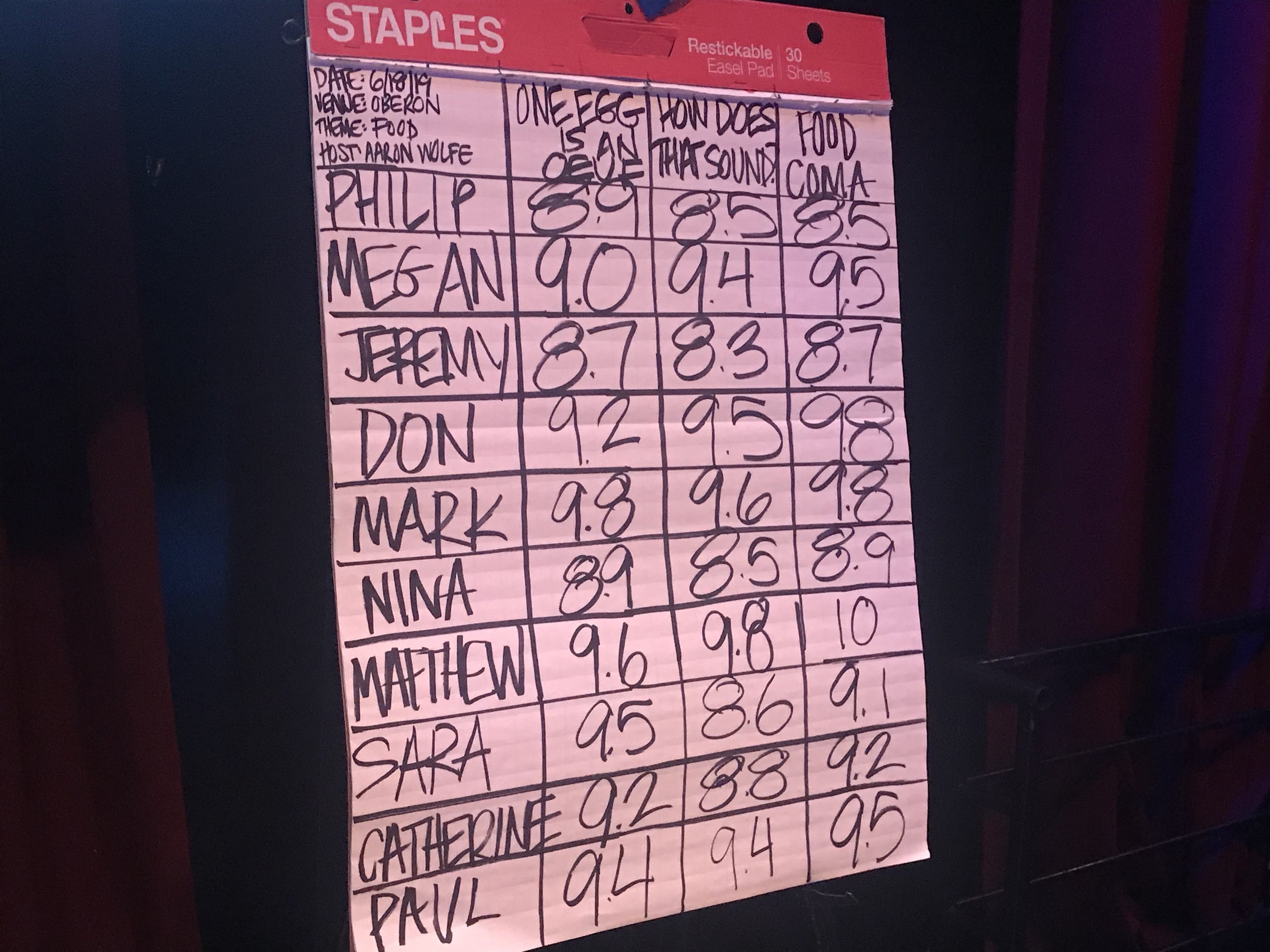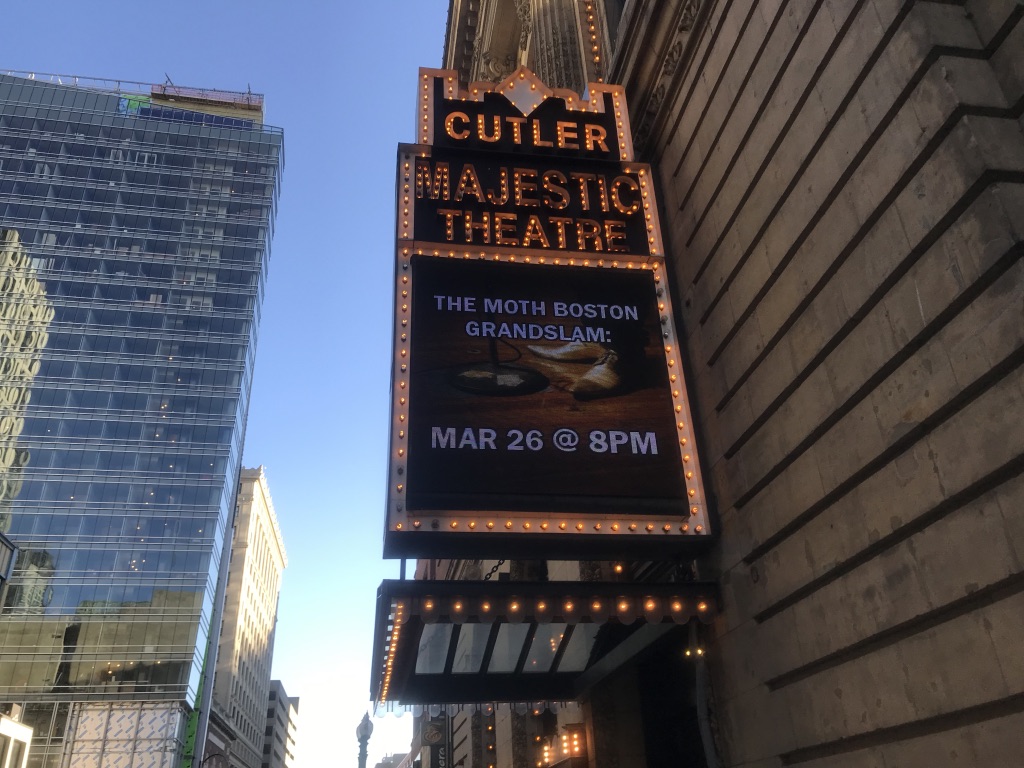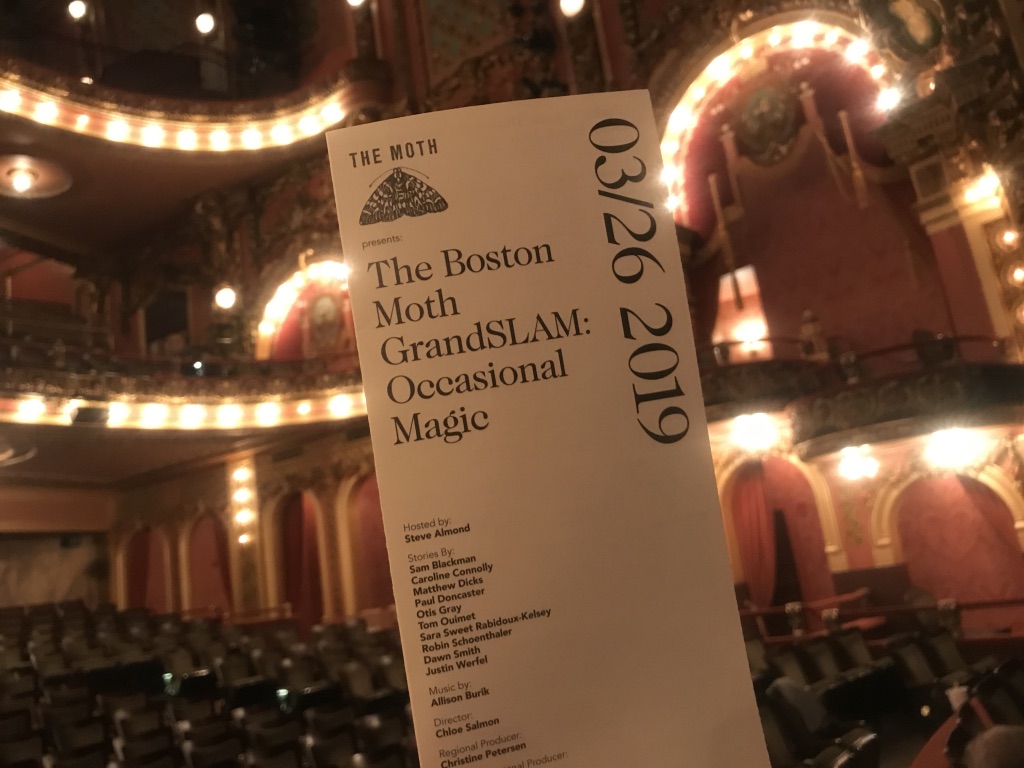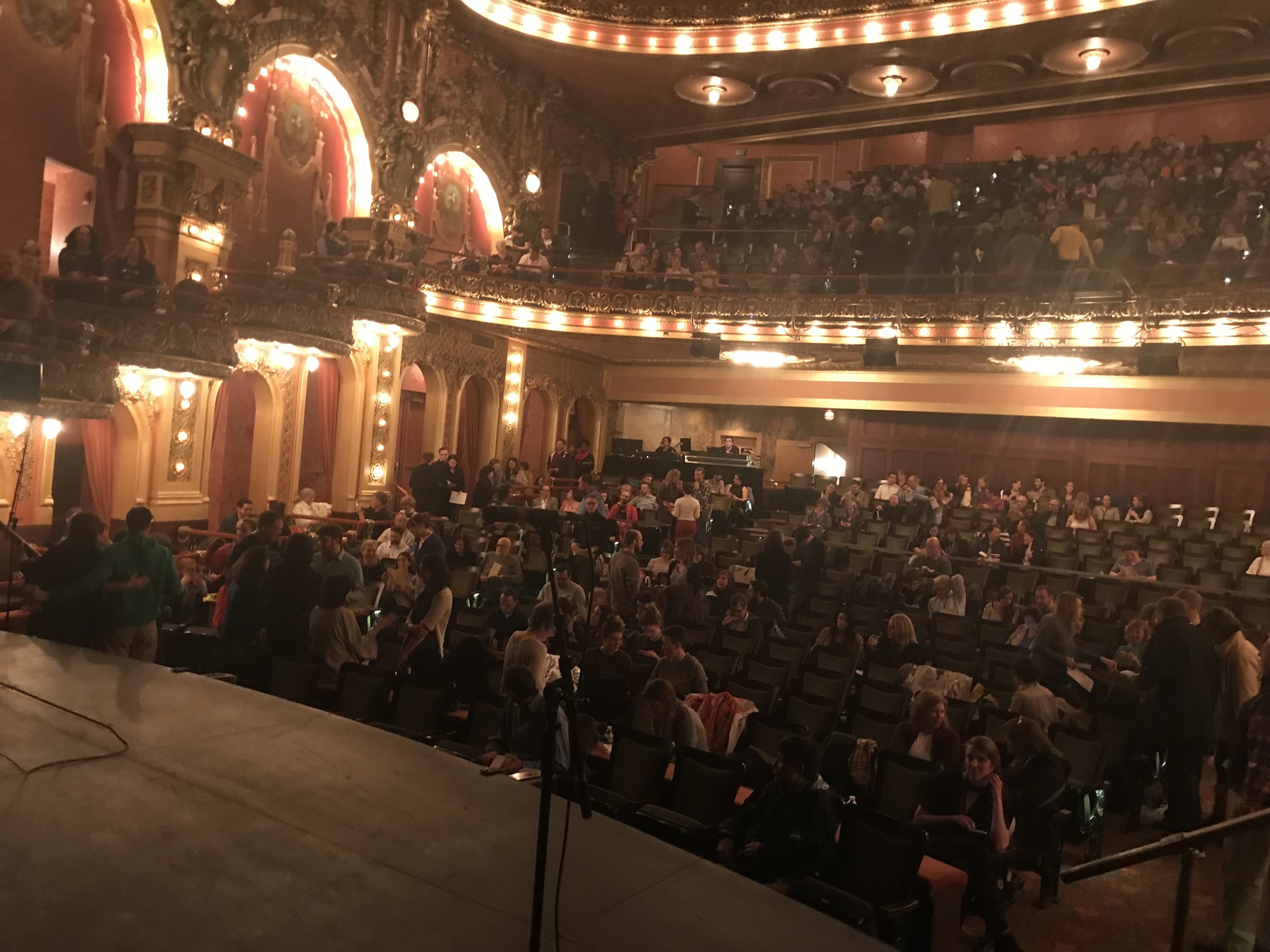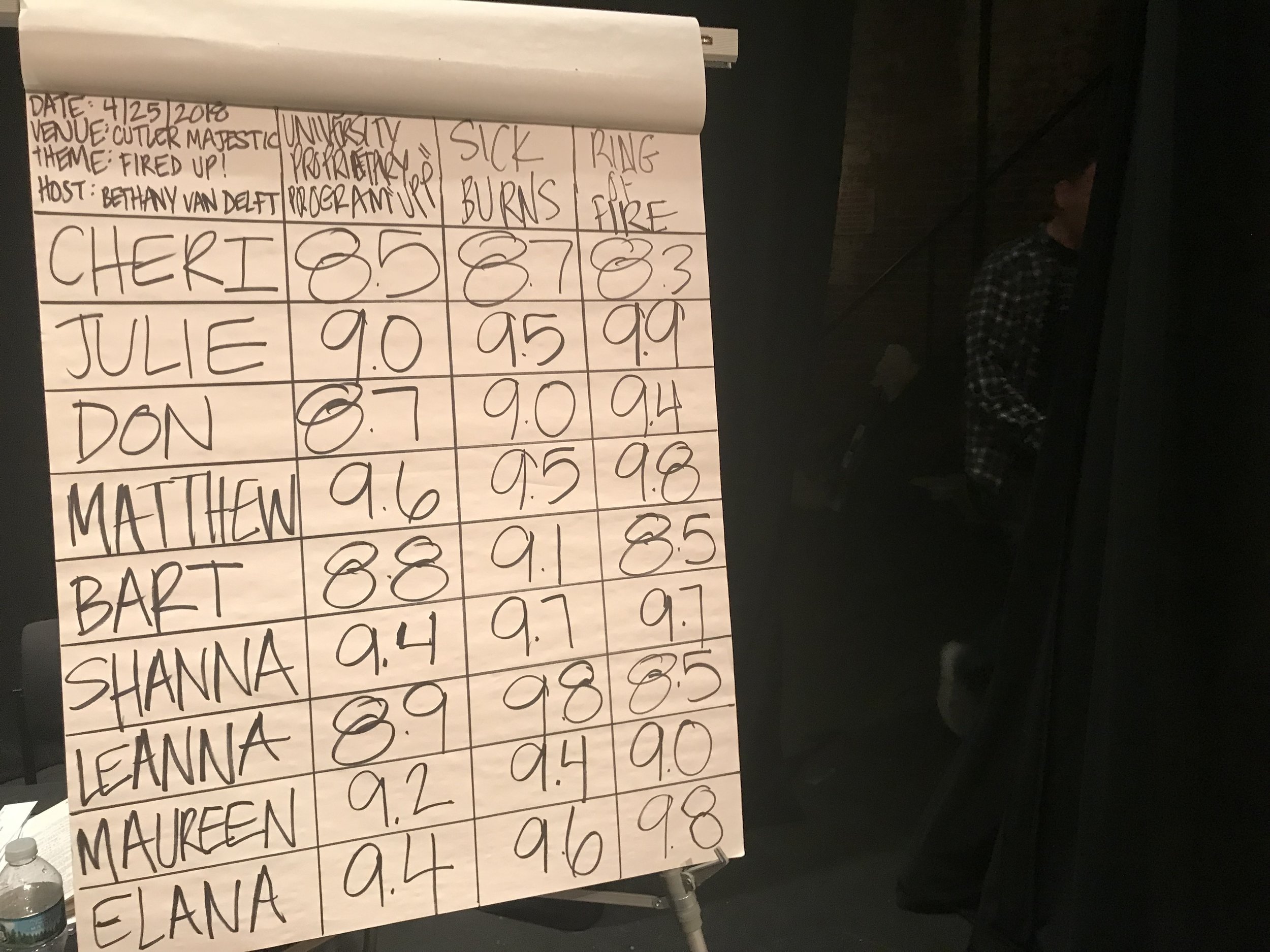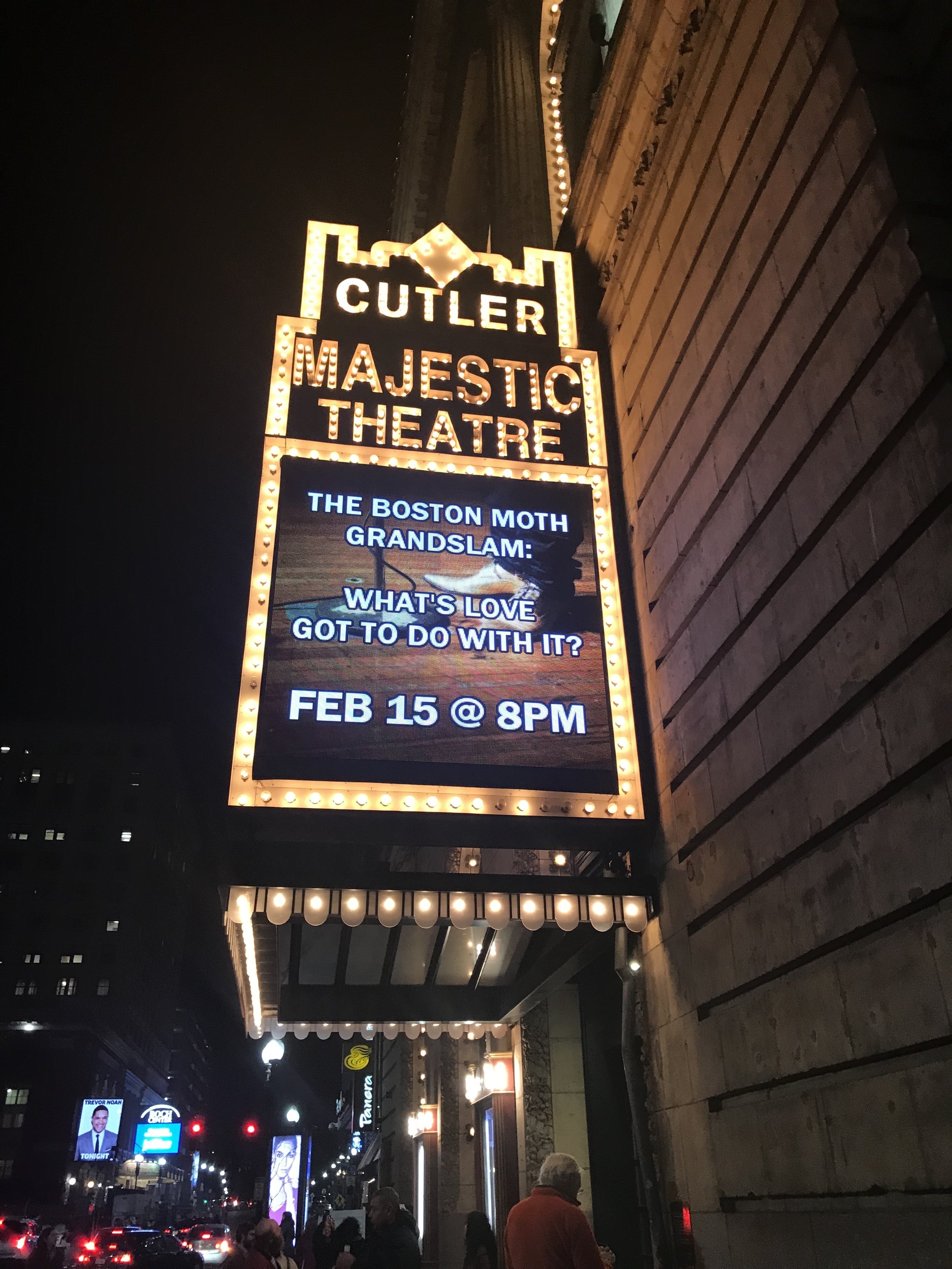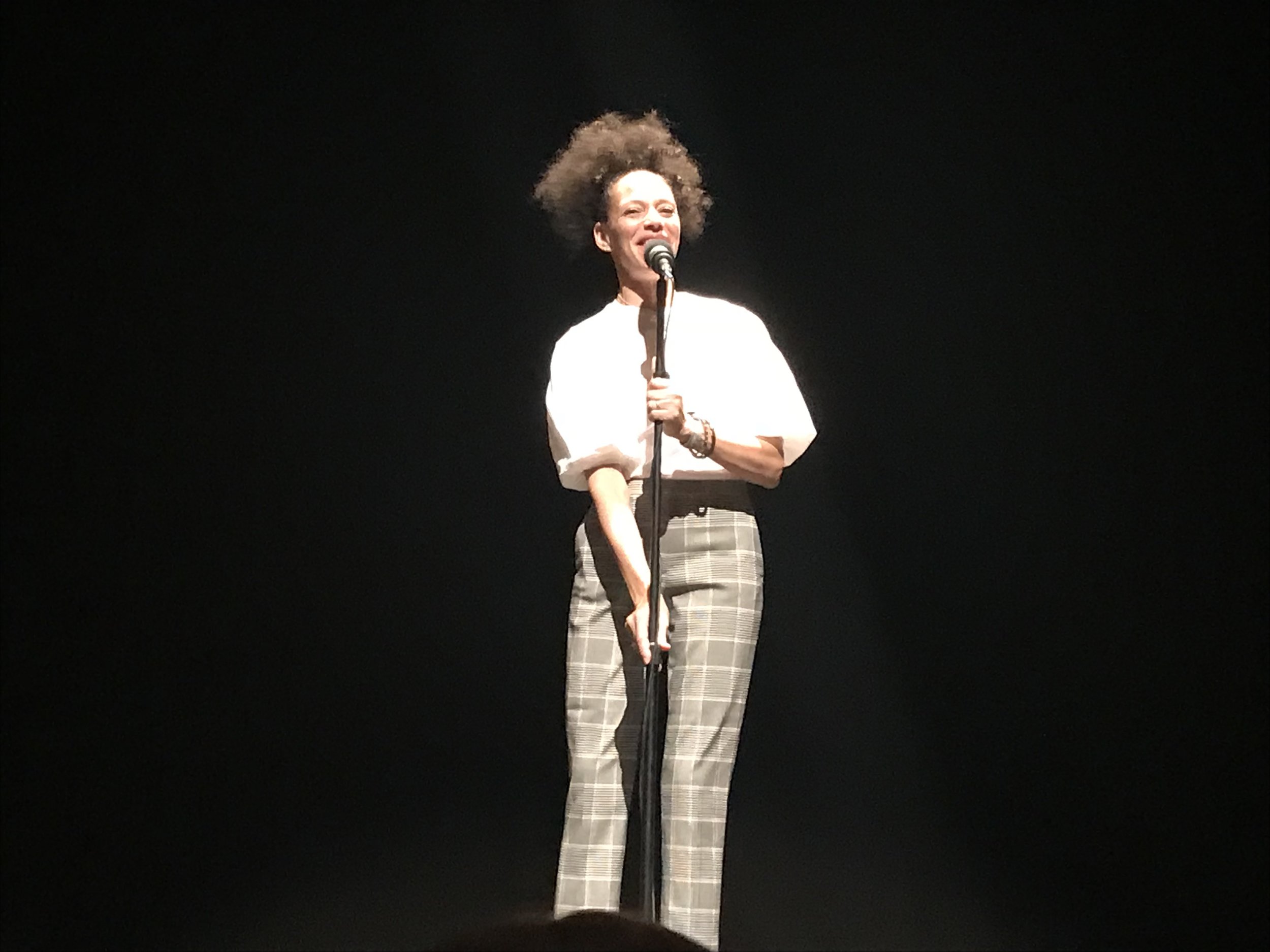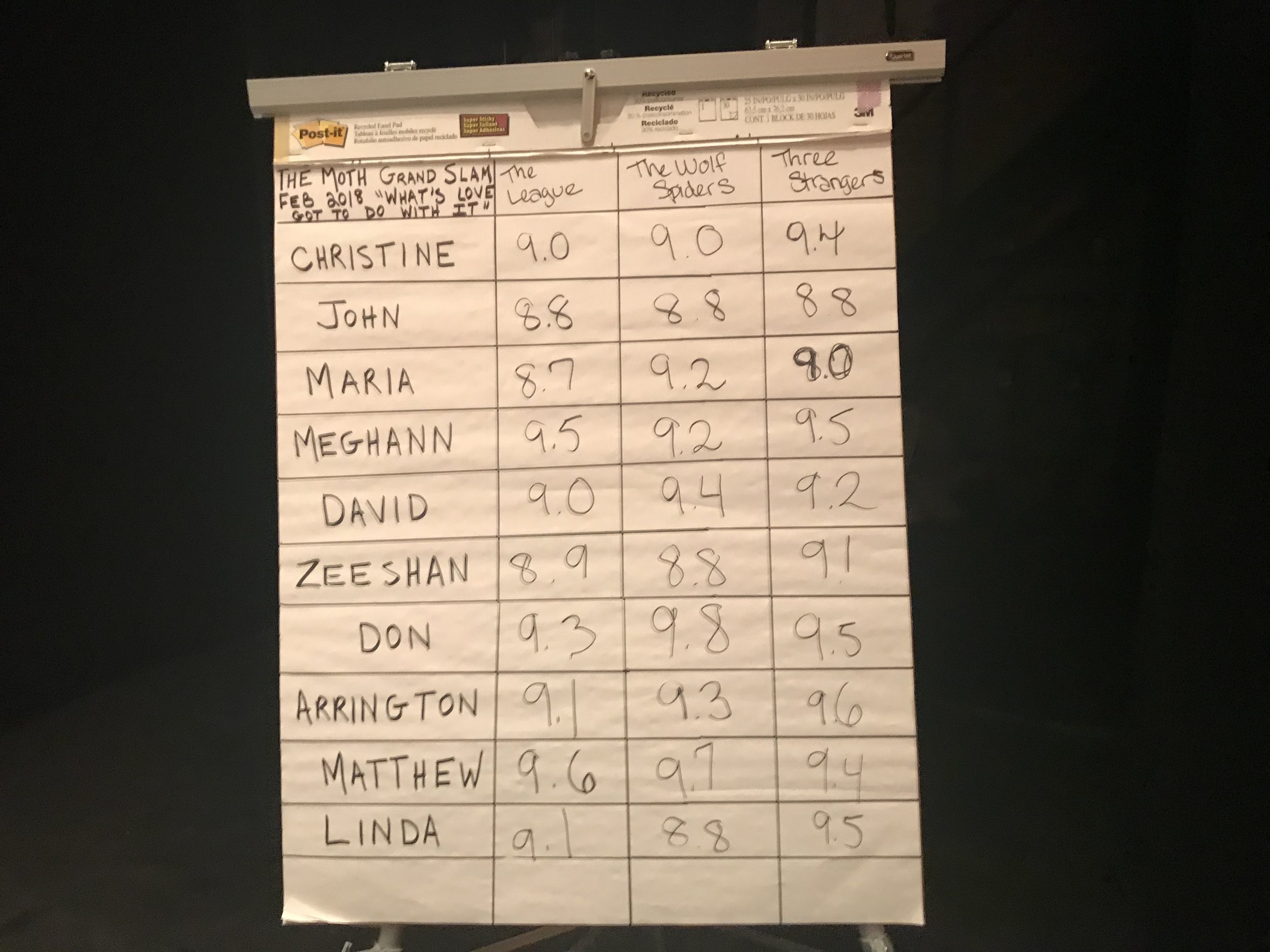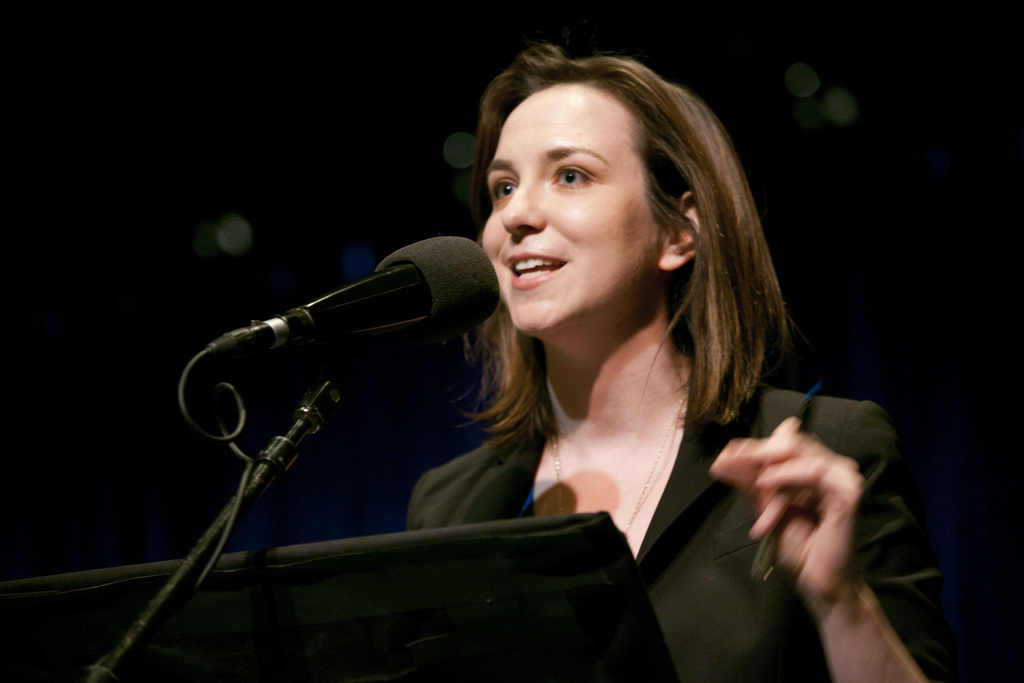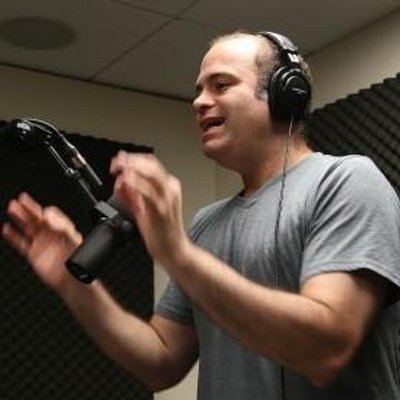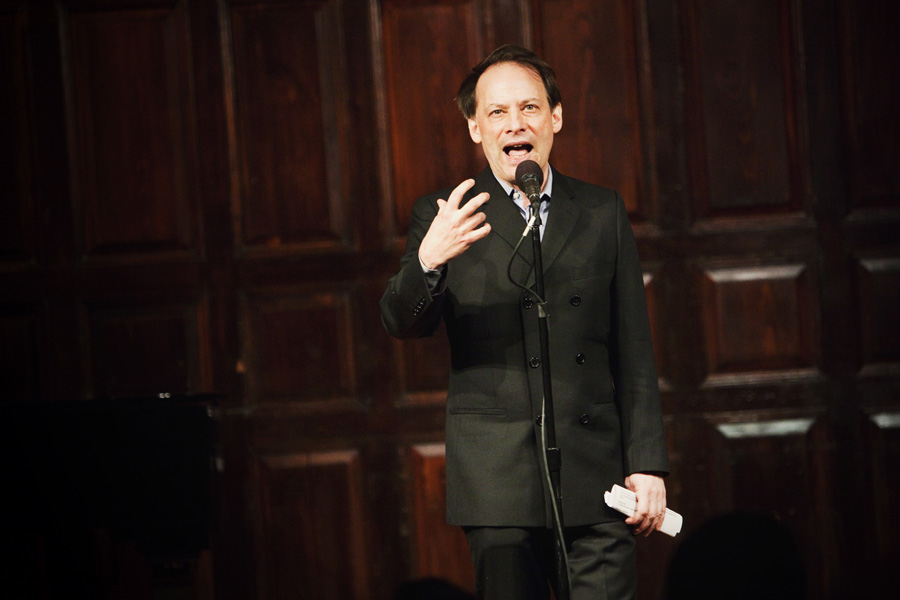Lessons are almost always learned the hard way. But not on Wednesday night.
/On Tuesday night my friend, Donna, and I journeyed east to attend a Moth StorySLAM at Laugh Boston, a comedy club in the south end of the city.
The theme of the night was Animals. If my name emerged from the bag, I planned to tell the story of approving an expensive, improbable spinal surgery on my dog, Kaleigh, after Elysha and I had a lengthy discussion with the veterinarian over the phone in the middle of the night.
All while I was sleepwalking.
I have no recollection of the conversation or the decision that we made. I didn’t even know that Kaleigh’s life was in danger. When we had admitted her at the animal hospital, it was because she was constipated and therefore dehydrated, and as a result, she required fluids.
No big deal. You can imagine my reaction the following morning when the vet called to tell me that she had survived the first of two surgeries.
It’s a good story that I had told at Speak Up a year before. I liked its chances of winning. It had surprise, heart, and a little bit of humor. A good combination.
Then the fourth name was drawn from the bag, and the man who took the stage told a brilliant story about agreeing to care for a 17 year-old cat while simultaneously battling for his own life. It was fantastic. Masterfully told and utterly hilarious, but at the same time filled with real issues and tons of heart.
After deliberating, the judges awarded him two perfect 10’s and a 9.8.
This was a fairly unprecedented moment, at least in my experience. I’ve told stories in 76 Moth StorySLAMs and attended another 30 or 40 shows when my name wasn’t drawn from the bag, and I had never seen a storyteller receive two 10’s before.
In my entire storytelling career, I had only received three 10’s in total.
Even if judges love a story beyond compare, they will typically leave themselves some room in the unlikely event a better story comes along. Since he had been chosen fourth, most judging teams would’ve awarded him scores like 9.6 or 9.8, giving themselves enough wiggle room in case they needed it.
But I also understood the judges’ decisions. He had been fantastic. He had owned the room. His story was chock full of vulnerability, authenticity, hilarity, suspense, and surprise.
And the audience agreed with the judges. When the scores were announced, the room was filled with applause and hoots of agreement.
But now I found myself in uncharted territory. I had a really good story that had no chance of winning now. What to do?
Donna gave me the answer.
“Tell a different one,” she said. “Wing it. You’ve done this a million times. Tell something else and save your good one.”
I dismissed the idea as the fifth storyteller took the stage, but then intermission rolled around. I had a moment to think. It occurred to me I had another animal story. A few, in fact.
The story of the raccoon that we had for a pet when I was growing up.
The story of the horse that took off with me clinging to its mane when I was about six.
The story about the time my father brought a horse into the dining room.
The story about the time I had rescued Kaleigh from an angry, leash-less pit bull.
The story of Pirate, the dog I had unknowingly called back across the street into the path on an oncoming car.
Then it hit me. I had another story. The story of our cat, Pluto, and his recent near-death experience. It was a story with lots of suspense and humor, and it was only about three weeks old.
I could probably pull it off.
So I spent intermission putting the story together in my head, identifying scenes, finding the right first line, and memorizing possible laugh lines. Intermission had ended and the sixth storyteller had taken the stage when I finally found the final lines of my story and liked them a lot. With a beginning, an ending, and my scenes clearly set in my head, I thought I could pull it off. It wouldn’t be great, but it would be good enough if my name was drawn from the bag.
Best of all, I could save my sleepwalking story for another day.
I told Donna that I would tell the Pluto story instead. I texted Elysha, telling her the same.
When the seventh storyteller was chosen and it wasn’t me, something strange happened. I started to fall in love with the Pluto story. I felt terrible about wasting a potentially great but not-fully-baked story in an effort to preserve another.
“Can I plan a third story right now?” I wondered. “Maybe the horse story?” Then I recalled another animal story. Elysha’s cat, Jack, had despised Elysha’s previous boyfriend, and she had told me as much several times. I felt like part of that boyfriend’s eventual demise was Jack’s ongoing rejection of him, making my first meeting with her cat a high stakes affair.
Maybe I could tell that one instead? Could I plan a third story in case my name was chosen?
Then I went to the restroom between the seventh and eighth storytellers. On the way, a couple stopped me and asked if I was the guy who told the story of a chimney fire at a Moth GrandSLAM a couple years before.
“Yes,” I said. “That was me.”
They told me that they don’t attend Moth events very often but were so excited to see me in the room and hoped my name was chosen.
That was all I needed to hear. When my name was miraculously chosen tenth, I took the stage and told my sleepwalking story.
It was what I was supposed to do all along.
I like to win. In everything I do. I am a highly competitive person. But I have always believed that my primary responsibility when taking the stage at The Moth is to tell a new, well-crafted, highly entertaining story that expresses vulnerability and authenticity and attempts to connect me to my audience.
When I perform, I want audiences to know that they are going to be entertained by a great story that they have never heard before.
The same goes for Speak Up or any other show. Tell a great story every time.
I like to win. No, I love to win. But regardless of the score, I want to make the audience happy to have spent the money and time to attend the show. I want them to be entertained and moved. I want them to be thinking about my story in the days, weeks, or even months to come.
I want them to remember me, regardless of my score.
I had to tell my sleepwalking story. It was the story I had prepared to tell. It was the commitment that I had made to my audience when I dropped my name into the bag.
It was the right thing to do.
Then something unexpected happened.
I won. I received three perfect 10’s from the judges.
I couldn’t believe it.
After receiving a total of three 10’s in eight years, I had doubled my total in one fell swoop.
Was it the best story I’d ever told? No. Definitely not. But by awarding those two 10’s earlier in the night, the judges had put themselves in a bit of a box. If they liked my story as much as the fourth storyteller’s story, they had to give me 10’s, too. And that third judging team agreed.
Let’s be clear that recency bias also probably played a factor, too. Had I told my story in fourth position and my competitor told his story in tenth position, he may have won. That’s the reality of any subjectively judged event. I’ve won StorySLAMs from first, second, and third positions before, but it doesn’t happen often, so having my name drawn tenth probably helped.
But I had clearly made the right decision in terms of the competition by making the artistically correct decision. I gave the audience my best, expecting to lose given the scores before mine, but I was rewarded with the unexpected. My 42nd victory. A perfect score.
As I stepped off the stage, a man and woman approached me. The woman told me that they had attended the Moth GrandSLAM earlier in the year when I had told the story of taking Kaleigh on an eventful walk around the block in my boxer shorts. They were so happy to have heard another story about my beloved friend.
“That’s so weird,” I said. “I’ve told two stories about my dog in my whole life, and you’ve heard both?”
“Yes,” the woman said. “And I’m so glad.”
As I stepped away from that couple, a man approached and asked to hug me. He had lost his dog about six months before, and upon hearing me become emotional onstage about Kaleigh’s eventual death last summer after 17 glorious years made him feel “less stupid” about still becoming emotional from time to time about the loss of his furry friend.
I told him that I still cry about the loss of Kaleigh all the time. My eyes are filled with tears as I write these words.
The next day I received an email from a stranger who also sleepwalks. She was happy to hear someone speak about sleepwalking so openly and publicly. She has always found it to be a source of embarrassment but maybe a little less now.
These kind folks were reinforcers from the universe about doing the right thing. Much-needed reminders that there’s nothing wrong with wanting to win unless your desire for victory compromises your integrity.
In an effort to preserve a good story for another day, I nearly took the stage and told a hastily-prepared, sub-par story. I certainly wouldn’t have won had I told the Pluto story (or the Jack story), but even worse, the audience wouldn’t have gotten my best. A couple wouldn’t have experienced the joy in getting to know Kaleigh a little more. A man would still be feeling stupid about crying over his lost friend. A sleepwalker would still be feeling alone.
Worst of all, I would’ve placed competition (and the desire to win) over art.
Sometimes you learn lessons the hard way. That has often been the case for me. Lessons come with lumps. But sometimes you learn your lesson and find yourself miraculously rewarded, too.
If only every day could be as perfect as Wednesday night was for me.

